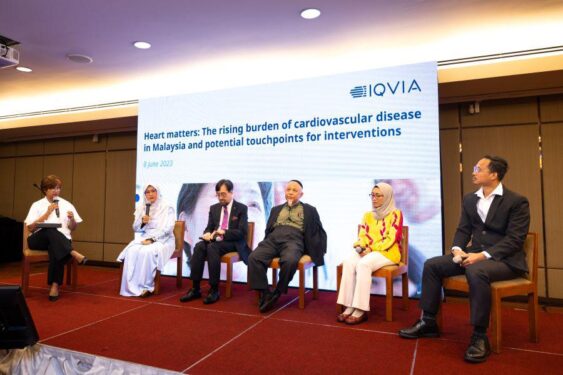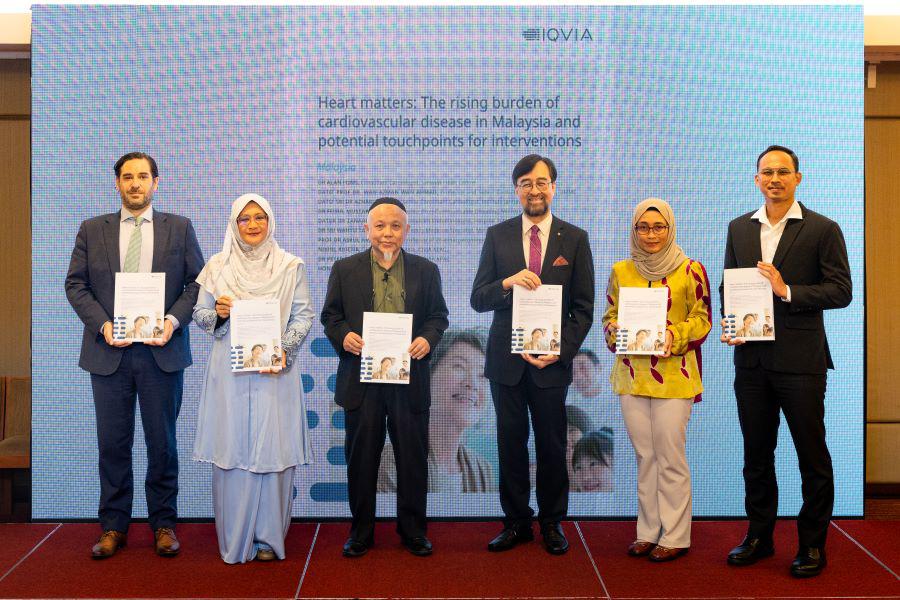A PANEL of multi-disciplinary health experts has stressed the importance of detecting and managing high cholesterol along with other cardiovascular (CVD) risk factors to avoid heart attacks and strokes.
Cardiovascular disease is on the rise in Malaysia with patients presenting eight years earlier than the global average. In 2019, the National Health and Morbidity Survey reported that one-in-two Malaysians were overweight or obese; four-in-10 had high cholesterol; three-in-10 had hypertension; and one-in-five had type 2 diabetes mellitus.
However, despite high cholesterol being the second most prevalent risk factor, it had the lowest diagnosis rate (35%) amongall risk factors. More worryingly, about one quarter (24.6%) of people were unaware they had high cholesterol.
This was highlighted during a media briefing held in conjunction with the launch of a position paper entitled Heart Matters: The Rising Burden of Cardiovascular Disease in Malaysia and Potential Touchpoints for Interventions.
The panel of authors comprised leading Malaysian experts in cardiology, endocrinology, family medicine, public health and pharmacoeconomics.
High cholesterol is often overlooked or taken for granted, according to consultant cardiologist and author of the position paper Dr Alan Fong.
“High cholesterol typically presents no noticeable symptoms; that’s why people often perceive it as being less dangerous. Many do not realise that high cholesterol, particularly LDL-cholesterol increases the likelihood of developing atherosclerotic cardiovascular disease or ASCVD, the most common type of heart disease out there,” explained Dr Fong.
“Atherosclerosis is a condition where LDL-cholesterol and other substances accumulate inside the walls of blood vessels, forming atherosclerotic plaques. Over time, these plaques can grow, especially when cholesterol levels are high.
“As the plaques grow, they can cause severe narrowing of the blood vessels, and can lead to life-threatening features of ASCVD, such as heart attacks or strokes.”

In echoing Dr Fong’s opinion, professor and senior consultant cardiologist at University of Malaya Medical Centre Datuk Dr Wan Azman Wan Ahmad expressed concerns that Malaysian patients are getting younger.
“These days, we are seeing an earlier onset of CVD cases with the average age of patients ranging from 56 to 59 years old. This is 10 years younger than in developed countries. And, worryingly, about 25% of our patients with acute coronary syndrome are below the age of 50.”
Consequently, Dr Wan Azman stressed the importance of patients proactively bring high cholesterol under control.
“Those with high LDL-cholesterol need to change their outlook. We see a lot of patients who are not willing or resistant to optimally managing their cholesterol levels,” he stressed.
“Beyond the necessary lifestyle changes, patients need to adjust their perception and beliefs towards cholesterol-lowering medication. Statins are generally the first-line medications prescribed to patients. There are also innovative treatments in the form of injectables available.”
Dr Feisul Mustapha who co-authored the Heart Matters position paper hopes the public will take ownership over their heart health not only for their personal and family’s well-being but also for the country’s sake.
The Perak Public Health deputy director was formerly d director (non-communicable diseases) at the Health Ministry’s (MOH) Disease Control Division.
“CVD also places a tremendous burden on the healthcare system. It incurred the highest proportion of costs in hospitalisations (47.77%), medical tests (46%) and medications (53.77%) compared to other non-communicable diseases (NCDs),” observed Dr Feisul.
“CVD also accounts for a significant 61.72% of productivity loss caused by premature deaths and a staggering 59.4% of healthy years lost when compared to other NCDs.”
Additionally, Dr Feisul emphasised that one-in-three Malaysians have low health literacy which could hinder their ability to understand the disease and seek out treatment when necessary.
He suggested that community involvement and educational programmes are crucial in raising awareness of cholesterol and its connection to CVD. – June 8, 2023









